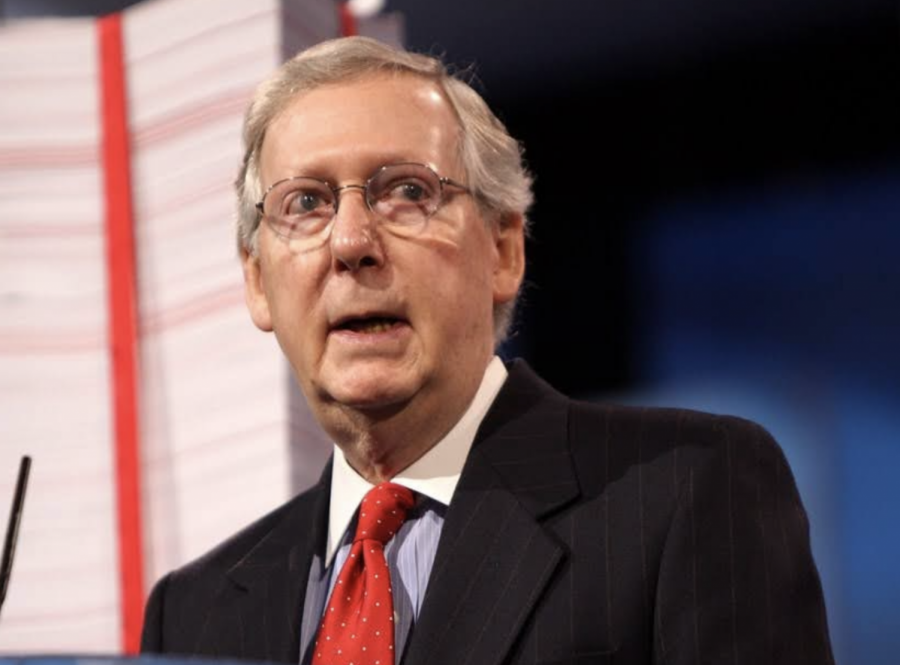Senate Minority Leader Mitch McConnell condemns the involvement of business in politics
In a public statement on April 5, Senate Minority Leader Mitch McConnell strongly opposed corporate interference in politics, saying that “businesses must not use economic blackmail to spread disinformation and push bad ideas that citizens reject at the ballot box.”
This statement follows corporate backlash to voter suppression laws in Georgia, which made it a crime to give water to voters and banned mobile voting sites.
Although opposition came from large corporations like Facebook, Coca Cola and Delta, major backlash that sparked much public debate and opposition stemmed from Major League Baseball’s decision to move their All-Star game out of Georgia.
Despite McConnell’s adamant assertions about business in politics, his past does not align with his current beliefs.
Previously, McConnell has been a strong supporter of corporate monetary contributions—shown through his support of the Supreme Court’s 2010 decision in Citizens United v. FEC — a verdict that gave large businesses more control over campaign donations, effectively allowing them to operate as private citizens with First Amendment rights.
When confronted about this discrepancy, McConnell said businesses “have the right to participate in the political process,” but that it should be limited solely to monetary donations.
Despite McConnell’s warnings, such as his statement that corporations “will invite serious consequences,” corporations aren’t listening. According to the Washington Post, over 100 corporations have met to discuss ways to oppose these laws in other states.
Starbucks, Target and Delta were present at that Zoom meeting, amongst many other high-profile corporations, showing that McConnell’s warnings are largely being ignored. Business executives who attended discussed the importance of equal voting laws and ways that they could use their power and influence to fight for that, such as by “delaying investments in states that pass the restrictive measures.”
Especially as voter suppression laws are on the rise, corporations are taking McConnell’s warning with a grain of salt, and corporate involvement in politics doesn’t appear to be going away anytime soon.

Samuel Weinmann is a passionate journalist who is a junior international affairs major at the University of New Haven. As the editorial head of the Charger...




